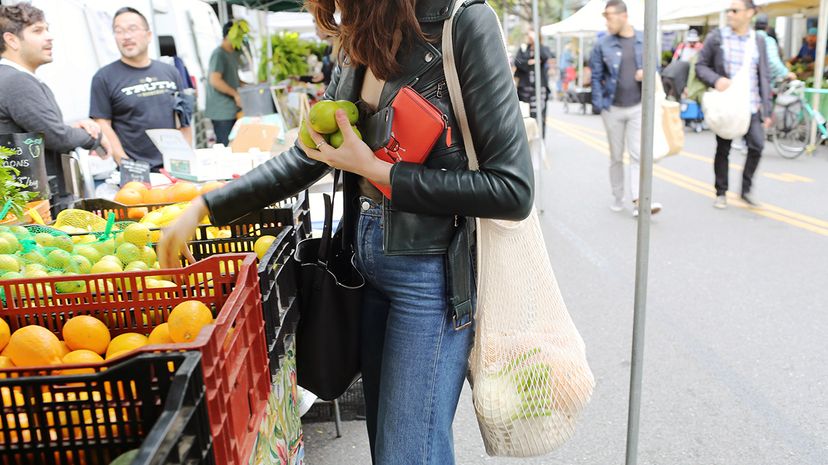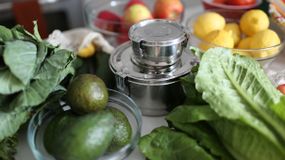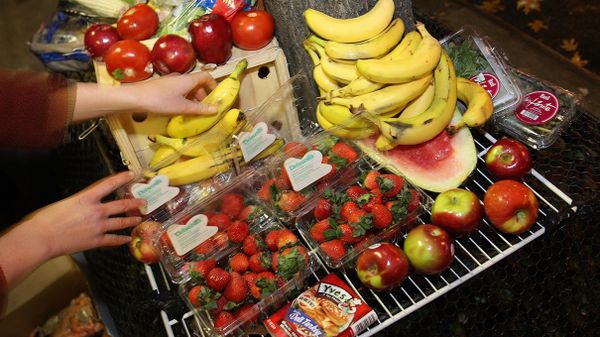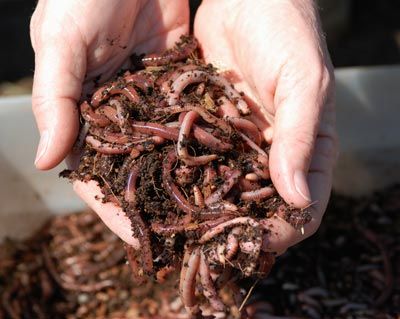
If you're already filling your recycling bin to the brim, if you never go anywhere without your reusable grocery totes, if you wouldn't touch a plastic water bottle with a 6-foot all-natural hiking pole, you might be ready to step up to the absolute pinnacle of green lifestyle.
We're talking "zero waste." As in no household waste.
Advertisement
Empty garbage cans. Every. Single. Week.
It can be done. It might take a little getting used to, of course, and a change in lifestyle, for sure. Plus, your idea of "zero" waste might not jibe with someone else's. In fact, your idea of "waste" might not fit with other people's definition.
But, yes, the notion that we can drastically cut back what we use and consume to such a level that it's at least pretty close to zero is utterly attainable, says Kathryn Kellogg, who runs a site called Going Zero Waste.
And the best part is that everybody will be better off the closer we get to zero.
"It's not about being perfect," Kellogg says. "It's just about trying to use your consumer voice to make change."
The idea of zero waste has been around for some time now. Many cite Bea Johnson's seminal 2013 book, "Zero Waste Home: The Ultimate Guide to Simplifying Your Life by Reducing Your Waste," for bringing the concept to the masses. Johnson, born in France and now living in California, blogs at Zero Waste Home and preaches the zero-waste gospel throughout the world.
She, along with people like Kellogg and New York's Lauren Singer (Trash is for Tossers) gladly show off months' worth of their household garbage — maybe a year or longer, even — that easily fits into a single glass jar. A small jar.
A year's worth of garbage in a jar? Many of us have more than that on our night tables.
What do you do with, say, paper towels or tissues or those bones from that store-bought chicken that you just bought that came in that big plastic bag that you now feel so guilty about?
Zero waste has to be darn near impossible. Doesn't it?
"Honestly, going zero waste is a bunch of tiny little changes that over time add up to a really big impact. If you think about it, bringing your bags to a grocery store isn't Earth-shattering," Kellogg says. "Asking for your coffee in a mug while you sit in the cafe, instead of [having it in] a disposable [cup] ... that's not like massively changing your life."
It's important to admit that the zero-waste movement — and, yes, it is definitely a movement — wouldn't be needed if we didn't produce staggering amounts of waste. According to the Environmental Protection Agency (EPA), the average American generates some 4.4 pounds (1.9 kilos) of trash that goes to a landfill every day. It's not just landfills, either. A patch of garbage floating in the Pacific Ocean between California and Hawaii is filled with tons and tons of plastic. It's now twice the size of Texas.
To stop producing all that garbage, Kellogg says, we can take some easy steps. The first three are EPA favorites. Some go further. You'll get the idea:
- Reduce what we use. Just don't use as much junk. We, especially Americans, simply use and consume too much of everything. Cut back. It makes things easier on everybody.
- Reuse. No more one-and-done disposable cups and straws and plastic bags and tissues and all that. (This also means think about buying second-hand when second-hand is perfectly usable. Clothes. Electronics. Whatever you can.)
- Recycle what we can. That goes for everything from TV sets to smartphones to the envelopes you get in your mailbox. Obviously, this is necessary only for what we don't reduce and reuse and what we can't ...
- Compost. Food waste and anything else that is biodegradable will recycle safely into the environment a lot more quickly in a compost pile than in a landfill.
We can start our way to a zero-waste lifestyle by ourselves. But we may need some help — mainly from the people who produce all this stuff — if we're really going to make a dent in this garbage pile that's strangling the planet.
Kellogg talks about "rewriting the system" to "write waste out of existence" by people demanding that businesses and governments become more environmentally responsible. "Individuals must act so policies can react," she says. "Manufacturers really need to step up and say that this is something they want to do. I think we're seeing a lot of small businesses moving toward that model."
Until that happens on a much larger scale, though, it's up to us. Here are some practical everyday ways we can move toward the zen of zero.

- Take reusable bags to the grocery or farmers' market. Kellogg forgot her reusables the first time (as many of us do). She made herself go back home to get them. She hasn't forgotten them since. Leave them in your car if you have to.
- Rethink the way you buy food. Skip the bagged salads and canned foods and buy fresh whenever possible. And in bulk. Many stores offer items package-free. Take your own reusable containers — cloth or net bags for produce, beans or flour, and glass jars for olive oil or honey — and, suddenly, you're using a lot less plastic.
- Keep a cup or a reusable water bottle. Enough with all the plastics disposable cups. Some places, including Starbucks, even give discounts when you have your own tumbler.
- Use cloth instead of paper towels. The cloth towels you have in your kitchen can work just as well as paper. Yeah, you have to wash them. But, according to Recycle Nation, if every household in the U.S. used three fewer rolls of non-recycled paper towels per year, we'd save 120,000 tons (108,862 metric tons) of waste and $4.1 million in landfill dumping fees.
- Use a cotton handkerchief. Remember those? It's not some crazy environmental-whacko thing to do. People used to use handkerchiefs all the time.
- Spike the plastic straws. According to the Be Straw Free campaign, Americans use 500 million of these buggers every day. If you have to suck on a straw, you can find all sorts of environmentally cool alternatives at The Last Plastic Straw. And, please, at the restaurant, make a point of telling your server not to bring any straws to the table.
- Rethink your hygiene routine. Switch to an all-metal safety razor with recyclable blades, and make your own beauty products when you can. Also, use only bamboo toothbrushes, which are compostable, and refillable, recyclable floss.
Advertisement

